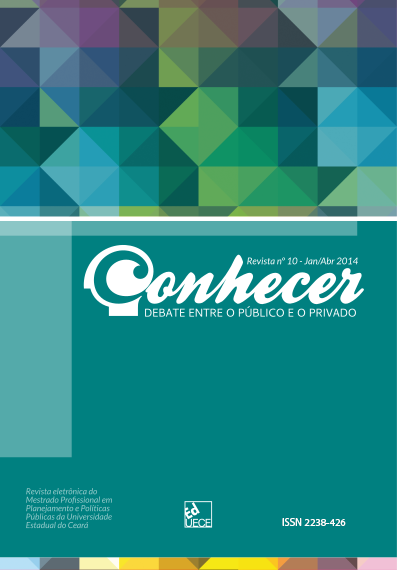The Durable Communities Project in Search of Sustainable Territorial Development in Amapá
Keywords:
Local Development, Territorial Development, Sustainable development, Local Productive Arrangements, Social ParticipationAbstract
This study addresses the process of sustainable local territorial development in Brazil, which is also part of the actions carried out by the current Amapá State Government, since programs and projects, under the aegis of economic and social development, are from this new perspective of development that is in implantation in the municipalities amapaenses. In this way, it is imperative to understand the Durable Communities Project, its development model that hour is practiced in the networks of institutional and community social relations and its evolution, its process of maturation and creative organization based on the perceptions that derive from the activities developed in the exogenous or endogenous interventions, as a way to solidify and legitimize Sustainable Territorial Local Development - DTRS and the Local Productive Arrangements - APL's. The study shows, however, that the importance of the participatory approach is not simply to replace community and local approaches, but to complement, integrate and strengthen them. As in the other approaches, in DTRS discourse there is often an emphasis on aspects of harmony and cooperation.Downloads
Download data is not yet available.
Downloads
Published
2014-01-06
How to Cite
Pena, M. dos S. R. F., & Frota, F. H. da S. (2014). The Durable Communities Project in Search of Sustainable Territorial Development in Amapá. Conhecer: Debate Entre O Público E O Privado, 4(10), 147–172. Retrieved from https://revistas.uece.br/index.php/revistaconhecer/article/view/1099
Issue
Section
Artigos
License
Authors who publish in this journal agree with the following terms:
- Authors retain the copyright and grant the journal the right of first publication, and the study is simultaneously licensed under the Creative Commons Attribution License, which allows sharing the study by acknowledging authorship and initial publication in this journal.



